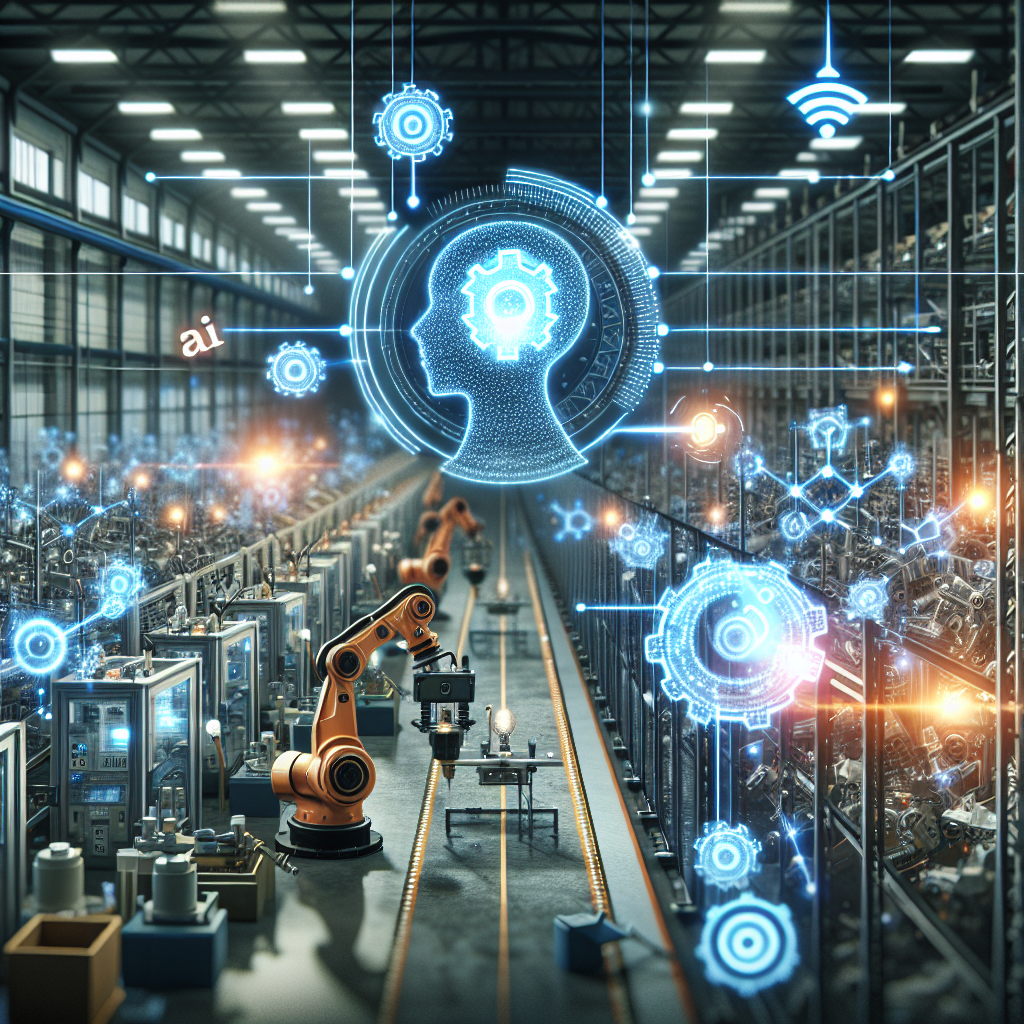Artificial Intelligence (AI) is revolutionizing the manufacturing industry by enabling continuous improvement in processes, efficiency, and quality. As the demand for faster production, higher quality products, and increased customization grows, manufacturers are turning to AI to streamline operations and drive innovation.
One of the key ways AI is transforming manufacturing is through predictive maintenance. By using machine learning algorithms to analyze data from sensors and equipment, manufacturers can predict when machines are likely to fail and schedule maintenance before a breakdown occurs. This not only reduces downtime and maintenance costs but also extends the lifespan of equipment, leading to increased productivity and efficiency.
AI is also being used to optimize production schedules and inventory management. By analyzing historical data, market trends, and customer demand, AI algorithms can create more accurate production schedules, reduce inventory levels, and minimize waste. This results in lower costs, faster delivery times, and improved customer satisfaction.
Another area where AI is making a significant impact is in quality control. By using computer vision and machine learning algorithms, manufacturers can automatically detect defects in products, identify trends in defects, and take corrective action before defective products reach the customer. This not only improves product quality but also reduces scrap, rework, and warranty costs.
In addition to predictive maintenance, production scheduling, inventory management, and quality control, AI is also being used to optimize supply chain management, improve energy efficiency, and enhance worker safety. By analyzing vast amounts of data in real-time, AI can provide manufacturers with actionable insights to make better decisions and drive continuous improvement across all aspects of their operations.
Furthermore, AI is enabling manufacturers to embrace the concept of Industry 4.0, where machines, products, and processes are interconnected and communicate with each other. This interconnectedness allows manufacturers to create smart factories that are more agile, flexible, and responsive to changing market conditions. By using AI to analyze data from sensors, machines, and products, manufacturers can optimize production, reduce downtime, and improve overall efficiency.
While AI offers numerous benefits to manufacturers, there are also challenges and concerns that need to be addressed. One of the main challenges is the lack of skilled workers who can develop and implement AI solutions. Manufacturers need to invest in training and upskilling their workforce to ensure they have the necessary expertise to leverage AI effectively.
Another challenge is data privacy and security. As manufacturers collect and analyze more data to drive AI solutions, they need to ensure that the data is protected from cyber threats and comply with regulations such as GDPR. Manufacturers need to invest in cybersecurity measures and data governance to safeguard their data and build trust with customers.
Despite these challenges, the benefits of AI in manufacturing far outweigh the risks. By embracing AI, manufacturers can drive continuous improvement, increase efficiency, and stay competitive in today’s fast-paced market. As AI technology continues to evolve, manufacturers need to stay ahead of the curve and leverage AI to unlock new opportunities for growth and innovation.
FAQs:
Q: How can AI help manufacturers improve quality control?
A: AI can help manufacturers improve quality control by using computer vision and machine learning algorithms to automatically detect defects in products, identify trends in defects, and take corrective action before defective products reach the customer.
Q: What are some of the challenges in implementing AI in manufacturing?
A: Some of the challenges in implementing AI in manufacturing include the lack of skilled workers, data privacy and security concerns, and the need for investment in training and upskilling the workforce.
Q: How can manufacturers leverage AI to optimize production schedules?
A: Manufacturers can leverage AI to optimize production schedules by analyzing historical data, market trends, and customer demand to create more accurate schedules, reduce inventory levels, and minimize waste.
Q: What are some of the benefits of AI in manufacturing?
A: Some of the benefits of AI in manufacturing include predictive maintenance, production scheduling optimization, quality control improvement, supply chain management optimization, energy efficiency improvement, and worker safety enhancement.
Q: How can manufacturers ensure the security of their data when implementing AI solutions?
A: Manufacturers can ensure the security of their data when implementing AI solutions by investing in cybersecurity measures, data governance, and compliance with regulations such as GDPR to protect their data from cyber threats.

